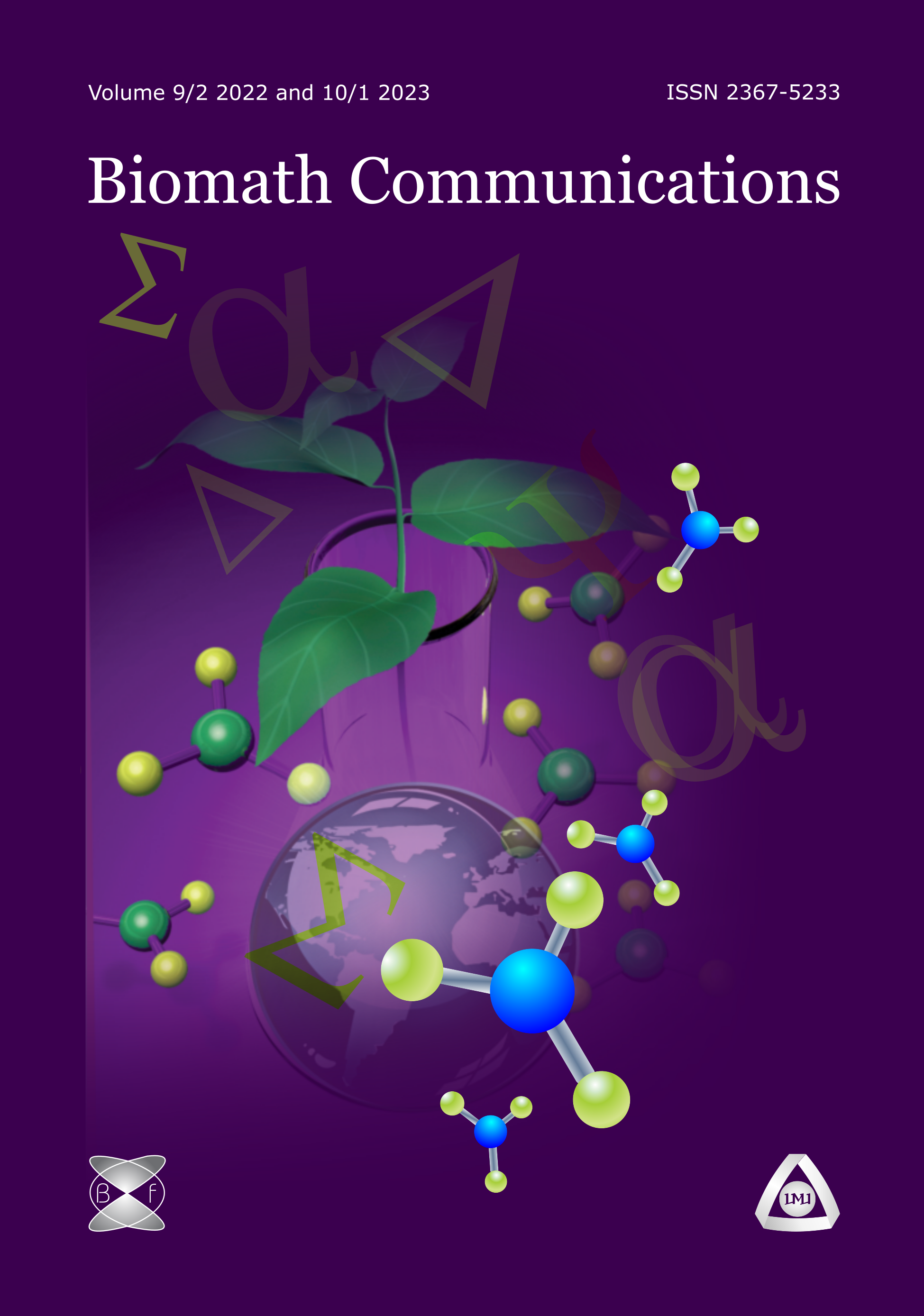On the Mathematical Modelling of EPS Production by a Thermophilic Bacterium
DOI:
https://doi.org/10.11145/154Abstract
An increasing interest towards microbial exopolysaccharides (EPSs) is determined by the wide variety of their properties as a result of diversity in their composition. Thermophilic microorganisms suggest non pathogenic products, appropriated for application in food industry, pharmacy and cosmetics. They offer also short fermentation processes, better mass transfer, decreased viscosity of synthesized polymer and of the corresponding culture liquid. Only a few EPS-secreting thermophilic bacteria were isolated [2]. In the current work we report on the mathematical modeling of the fermentation processes based on experimental results for EPS production by a thermophilic bacterium,В Aeribacillus pallidus 418, isolated from Rupi basin, South-West Bulgaria. An investigation on the influence of agitation and aeration on the bacterial growth and EPS synthesis revealed high mass transfer dependence of the polymer production. The polymer production is associated to growth. Microbial and substrate dynamics are described by means of systems of ODEs. Two possible dynamical models based on ideas fromВ [1] are proposed and numerical simulations are presented.
Acknowledgements. The authors are grateful to the National Fund for Scientific Research, Bulgaria for financial support of this work (Contract DTK 02/46).
[1]В Alt, R., S. Markov,Theoretical and computational studies of some bioreactor models,В Computers and Mathematics with Applications 64 (2012), 350--360.
[2] Nicolaus, B., M. Kambourova, E.T. Oner, Exopolysaccharides from extremophiles: from
fundamentals to biotechnology, Environ. Technol. 31 (2010), 1145--1158.
Downloads
Published
Issue
Section
License
The journal Biomath Communications is an open access journal. All published articles are immeditely available online and the respective DOI link activated. All articles can be access for free and no reader registration of any sort is required. No fees are charged to authors for article submission or processing. Online publications are funded through volunteer work, donations and grants.
Authors who publish with this journal agree to the following terms:
- Authors retain copyright and grant the journal right of first publication with the work simultaneously licensed under a Creative Commons Attribution License 4.0 that allows others to share the work with an acknowledgement of the work's authorship and initial publication in this journal.
- Authors are able to enter into separate, additional contractual arrangements for the non-exclusive distribution of the journal's published version of the work (e.g., post it to an institutional repository or publish it in a book), with an acknowledgement of its initial publication in this journal.
- Authors are permitted and encouraged to post their work online (e.g., in institutional repositories or on their website) prior to and during the submission process, as it can lead to productive exchanges, as well as earlier and greater citation of published work (See The Effect of Open Access).

